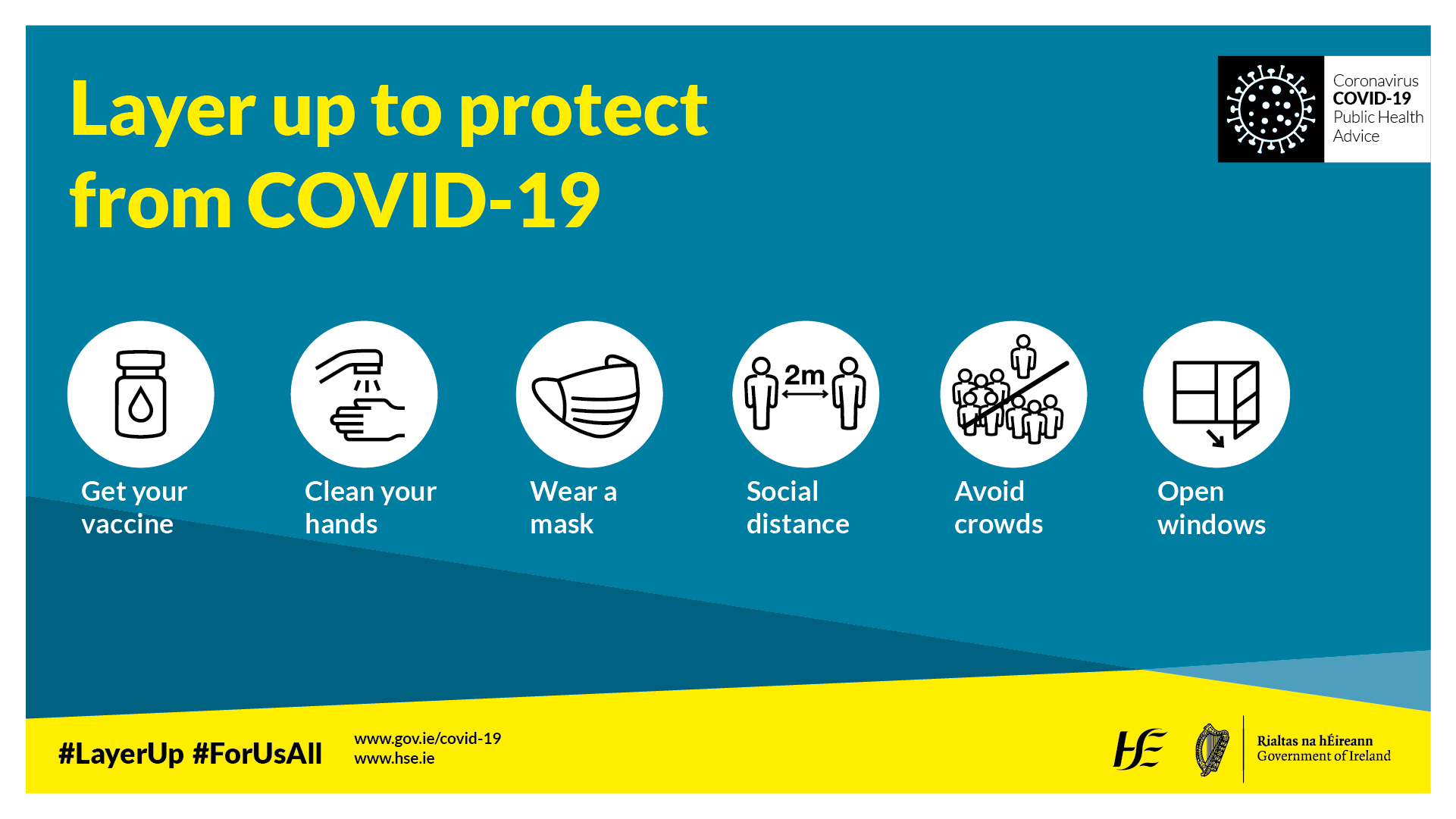We’re all a bit disappointed at the way things are going, so again we thought it would help to summarise in simple language what we know about Covid-19 and how we can all help each other.
Covid-19 basics
Covid-19 is an illness caused by a respiratory virus. It is spread through the air when an infected person coughs, sneezes or even talks loudly. The big problem is that it’s often hard to spot an infected person. We know that infected people can be very ill, however many more have little or mild symptoms. These symptoms often resemble a common cold or flu. We also know that someone can be infectious for a couple of days before they get symptoms.
So what we’re trying to do is manage risk by reducing the risk of developing Covid ourselves. We particularly want to reduce the risk of spreading it to vulnerable relatives and friends.
How do we do this?
- Get your Covid Vaccine.
Nearly 10 billion vaccines have been administered worldwide. Ireland has one of the highest rates of vaccination, which has been shown to significantly reduce the risk of serious illness and hospitalisation. Get your booster when you’re eligible - Wear a face mask when out.
Face masks protect us to some extent, but they are most effective at protecting others (in the event that we are unknowingly carrying the virus) – therefore do it out of respect.
Most people including children can wear face masks without difficulty if we don’t get frightened.
But please wear one properly, covering your mouth and nose - Meet in well ventilated areas or outdoors when possible.
Airborne viruses disperse much more quickly when there’s a good circulation of air, particularly outside.
“But it’s winter and it’s cold outside!”
We quite agree, so if meeting indoors we need to move to number 4 - Social distance – try to keep 2 metres apart.
Keeping it simple, viruses don’t travel too far in the air. The further you are from me, the less likely you are to catch my virus.
We try to avoid crowds because it’s harder to distance effectively, but there’s a higher probability that the crowd may contain an infected person.
And if you suddenly need to cough or sneeze, cover your mouth.
But if you’re coughing or sneezing or running a temperature, then please - Get a test if unwell
Let’s keep this simple too. Antigen tests if well; PCR tests if unwell.
This is again about risk. Antigen tests are quick and cheap but more prone to false negative tests, less so false positives.
If you’re well, the risk of Covid is less, and the level of inaccuracy in the antigen test becomes statistically less important
However if you have symptoms, the risk of Covid is higher, and it’s important to get a more accurate test.
Advice is changing so keep up to date by clicking this link
Advice for 2022
Stay at home if unwell; socialise a bit less than normal if you’re vaccinated and feeling ok.
Do the simple stuff well – masks where appropriate, distance and fresh air if you can.
Mind each other at home; think of others who may be struggling.
We actually have made progress in 2021. Let’s make 2022 a good year!


